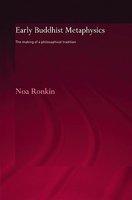
Book Summary
This book provides a philosophical account of the major doctrinal shift in the history of early Theravada tradition in India: the transition from the earliest stratum of Buddhist thought to the systematic and allegedly scholastic philosophy of the Pali Abhidhamma movement. Conceptual investigation into the development of Buddhist ideas is pursued, thus rendering the Buddha's philosophical position more explicit and showing how and why his successors changed it. Entwining comparative philosophy and Buddhology, the author probes the Abhidhamma's metaphysical transition in terms of the Aristotelian tradition and vis-a-vis modern philosophy, exploiting Western philosophical literature from Plato to contemporary texts in the fields of philosophy of mind and cultural criticism. This book demonstrates that not only does a philosophically oriented inquiry into the conceptual foundations of early Buddhism give rise to a better understanding of what philosophy and religion are qua thought and religion, but that it also helps introduce innovative ideas and fresh perspectives into the traditional Buddhological arena. "Early Buddhist Metaphysics" fills a significant gap in Buddhist scholarship and does so in an innovative way by equally combining philosophically rigorous investigation and Buddhological research criteria.
Book Details
| Book Name | Early Buddhist Metaphysics: The Making Of A Philosophical Tradition |
| Author | Noa Ronkin |
| Publisher | Routledge/curzon (Apr 2005) |
| ISBN | 9780415345194 |
| Pages | 288 |
| Language | English |
| Price | 8629 |








